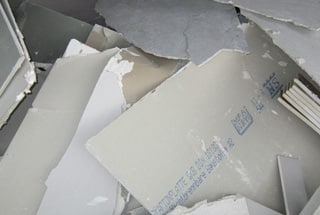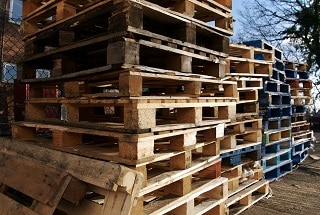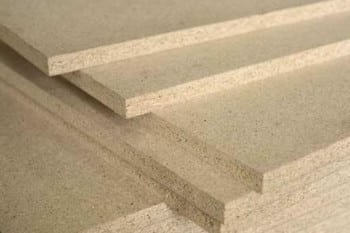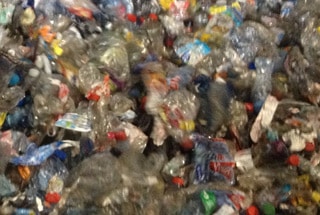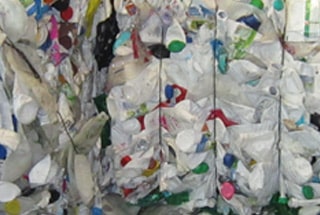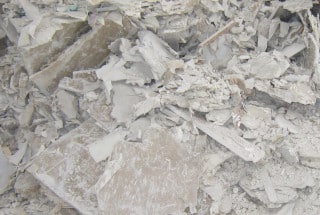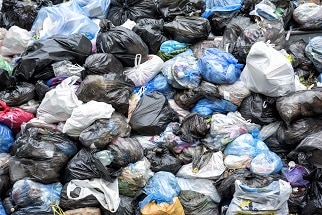Recycling plasterboard is a critical practice for construction and demolition companies
Offering substantial economic, operational, and regulatory benefits. In this article we will go through all of the benefits of efficient recycling of plasterboard, and why it is a must to do so.
This strategic approach not only enhances profitability but also ensures sustainable operations, positioning companies for long-term success in an increasingly eco-conscious market.
Not only will recycling plasterboard position the company as an environmental frontrunner, but using a custom-fitted crusher from ACA will also further this advantage. The crusher reduces transportation needs by enabling more efficient filling of trucks and it operates on pure electricity, enhancing both environmental and operational efficiency.
Economic advantages
Recycling plasterboard offers substantial economic benefits for companies, making it a strategic choice for enhancing profitability and sustainability. This approach leverages several key economic advantages.
Reduce costs on taxes and fees
Recycling plasterboard can be more cost-effective than traditional disposal methods, particularly in regions with high landfill taxes or disposal fees to recycling stations.
Revenue from recycled materials
Companies can generate additional revenue by selling recycled gypsum back to manufacturers. Our crushers ensure high-quality separation of gypsum from other materials, producing a valuable product that meets industry standards. This creates a profitable revenue stream from materials that would otherwise be discarded as waste.
Reduced transportation costs
Efficient waste processing with our crushers allows for more effective truck loading. By compacting and optimising the volume of recyclable materials, companies can reduce the number of trips needed to transport waste. This leads to lower transportation costs, reduced fuel consumption, and decreased wear and tear on vehicles.
Lower operational costs
ACA crushers are designed to be energy-efficient and require minimal maintenance. Operating on pure electricity, these machines help companies reduce energy costs and comply with stringent environmental regulations. The robust design ensures long-term durability, reducing the frequency and cost of repairs and replacements.
Enhanced market competitiveness
Companies can position themselves as leaders in sustainability by demonstrating a commitment to environmentally responsible practices. This can enhance a company’s reputation, attract eco-conscious clients, and provide a competitive edge in the market.
Increased efficiency and productivity
The streamlined recycling process facilitated by our crushers allows companies to handle waste more efficiently. This improves overall site management, reduces downtime, and increases productivity. The ability to process large volumes of plasterboard quickly and effectively supports continuous operations and maximises resource utilisation.
Operational efficiency
Streamlining the operational processes improves site management, leading to better waste management, and multiple operational benefits.
Improved site management
Effective recycling practices result in better waste management on construction and demolition sites, reducing clutter and maintaining a cleaner, safer work environment.
Streamlined waste handling
With the capability to process large volumes of plasterboard efficiently, our crushers reduce the time and labour required for waste disposal, minimising interruptions and allowing projects to proceed more smoothly.
Reduced downtime
The robust and reliable design of our crushers ensures consistent performance with minimal maintenance, reducing the likelihood of equipment breakdowns and operational downtime, enabling continuous recycling operations.
Enhanced productivity
Optimising the recycling process with efficient crushers increases overall productivity. The ability to process plasterboard waste quickly supports higher throughput and maximises resource utilisation, allowing companies to focus on their core activities.
Efficient resource utilisation
Recycling plasterboard waste into valuable materials reduces reliance on new raw materials, promoting sustainable operations and better resource management.
Employee safety and satisfaction
Maintaining a clean and organised site with efficient waste management contributes to a safer working environment. The low-maintenance, user-friendly design of the crushers improves employee satisfaction and reduces the risk of accidents.
Regulatory compliance
Ensuring compliance with environmental regulations is essential for construction and demolition companies. Recycling helps meet stringent regulatory requirements, and utilising efficient recycling solutions provides several advantages.
Adherence to legislation
Many countries mandate or encourage the recycling of construction and demolition waste. Recycling allows companies to comply with these regulations, avoiding potential fines and legal issues.
Compliance with environmental standards
Operating on pure electricity, an ACA crusher helps reduce the carbon footprint and supports compliance with stringent environmental regulations, aiding in meeting sustainability goals and avoiding potential fines and legal issues.
Documentation and reporting
Our solutions provide precise processing and recycling data, making it easier for companies to document and report their compliance with environmental regulations. Accurate reporting is often required by regulatory bodies and can also be used to demonstrate the company’s commitment to sustainability.
Risk management
Proper recycling practices mitigate the risk of environmental contamination and associated liabilities, ensuring that plasterboard waste is processed in an environmentally safe manner and reducing potential risks to the environment and public health.
Sustainability initiatives
Meeting and exceeding regulatory requirements can be a cornerstone of a company’s broader sustainability initiatives. Embracing recycling practices positions the company as a leader in environmental stewardship, which can be leveraged in marketing and business development efforts to attract eco-conscious clients and partners.
Recycling plasterboard enables construction and demolition companies to seamlessly meet regulatory demands while enhancing their operational efficiency and economic performance.
With ACA Industry’s advanced recycling solutions, companies can ensure compliance with stringent environmental regulations, mitigate risks associated with improper waste disposal, and maintain detailed documentation for accurate reporting.
This commitment to regulatory adherence not only protects the company from potential fines and legal issues but also strengthens its reputation as a leader in sustainability and environmental responsibility.
Corporate Social Responsibility (CSR)
Embracing corporate social responsibility (CSR) is increasingly important for most companies. Recycling is an important component of CSR, offering numerous benefits that extend beyond environmental impact.
Sustainability commitment
Companies that recycle demonstrate a strong commitment to sustainable practices, which also significantly contributes to reducing their environmental footprint and showcases their dedication to protecting the planet.
Reputation enhancement
Implementing robust recycling programmes helps companies build a reputation as environmentally responsible organisations. This positive image can attract eco-conscious clients, partners, and investors, enhancing market competitiveness and fostering long-term relationships.
Employee satisfaction and retention
Employees are increasingly valuing their employers’ commitment to sustainability. Companies that actively pursue recycling and other eco-friendly initiatives can boost employee morale and retention by fostering a sense of pride and purpose among their workforce.
Long-term business sustainability
Integrating recycling into CSR strategies ensures that companies are not only complying with current regulations but are also preparing for future environmental challenges. This forward-thinking approach supports long-term business sustainability and resilience.
Recycling as part of a comprehensive CSR strategy enables construction and demolition companies to demonstrate their commitment to sustainability and responsible business practices. Thereby enhancing reputation, boosting employee satisfaction, and building stakeholder trust, while ensuring long-term operational and environmental sustainability.
Environmental benefits
Offering significant environmental benefits, recycling plasterboard is crucial for construction and demolition companies.
Reduction of landfill waste
Recycling plasterboard significantly reduces the volume of waste sent to landfills. An efficient recycling technology ensures that a large portion of plasterboard waste is processed and reused, alleviating the pressure on landfill sites and extending their lifespan.
Prevention of emissions
When plasterboard decomposes in landfills, it can produce hydrogen sulphide gas, which is toxic and contributes to air pollution. Companies can prevent these harmful emissions, improving air quality and reducing their environmental footprint.
Resource conservation
Recycling plasterboard allows for the recovery and reuse of gypsum, reducing the need for mining new gypsum. This conservation of natural resources helps preserve ecosystems and reduces the environmental impact associated with raw material extraction.
Energy savings
The production of new plasterboard from recycled gypsum requires less energy compared to manufacturing from virgin materials. Our recycling solutions enhance energy efficiency, contributing to lower greenhouse gas emissions and a reduced carbon footprint.
Reduced environmental contamination
Proper recycling practices minimise the risk of soil and water contamination. ACA Industry’s advanced technology ensures that plasterboard waste is processed in an environmentally safe manner, preventing pollutants from leaching into the environment.
Mitigating the environmental responsibility, construction and demolition companies can significantly reduce their environmental footprint, conserve valuable resources, and contribute to a cleaner, healthier planet. This commitment to environmental stewardship not only supports regulatory compliance but also enhances the company’s reputation as a leader in sustainable practices.
Final thoughts
Recycling used and scrapped plasterboard supports the circular economy by minimising waste and maximising resource use. Efficient separation of gypsum from other materials allows for its reuse in new plasterboard production, reducing the need for virgin raw materials and conserving natural resources. This practice significantly decreases landfill waste and mitigates environmental impacts like soil contamination and greenhouse gas emissions.
Resource efficiency is enhanced by transforming waste into valuable materials, supporting a sustainable production cycle and reducing the environmental footprint of construction and demolition activities. Companies can generate additional revenue from recycled gypsum and lower raw material costs, driving sustainable business growth.
Adopting circular economy principles through recycling fosters innovation and competitiveness, helping companies stay ahead of regulatory requirements and market trends. This positions them as leaders in sustainability and innovation. Integrating recycled materials into production processes builds more sustainable supply chains, reducing dependence on finite resources and promoting long-term sustainability.
Commitment to plasterboard recycling not only benefits the environment but also drives long-term business success, ensuring reduced waste, conserved resources, and economic value creation, while enhancing reputation and operational efficiency.


